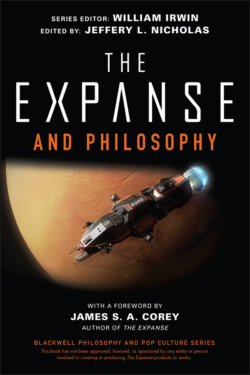Читать книгу The Expanse and Philosophy - Группа авторов - Страница 16
A New, Infinite (And Wonderful?) Universe
ОглавлениеThe first time the human race confronted the infinite spaces of the universe, it found itself at a loss to understand its place in that infinity. Galileo (1564–1642) had demonstrated the truth of the heliocentric model of the solar system. (Fun fact—Galileo also discovered one of the Belters’ future homes, Ganymede.) The idea that points of light in the night sky were stars, like our sun, which were moving through massive spaces and were far, far away was discussed in the salons of France and the academies of England. In 1687, Isaac Newton (1642–1727) published the first unified mathematical model of the motions of all bodies moving through space. All of the scientific world celebrated. Newton had done it—found the mathematical key to everything! It would be more than 200 years before relativity theory would throw the Newtonian model into question.
Like the presence of the Ring System in The Expanse, Newton’s model inspired enthusiasm about human possibilities and human enlightenment. Alexander Pope (1688–1744) caught the mood of the late seventeenth century well when he wrote, “Nature and nature’s laws lay hid in night: God said, ‘Let Newton be!’ and all was light.”2 But did this new understanding of the universe have a dark side? Were we on a promontory looking at the beauty of nature newly understood and looking toward a human future full of wonderful possibility? Or were we on a precipice over an empty abyss into which we would fall?
